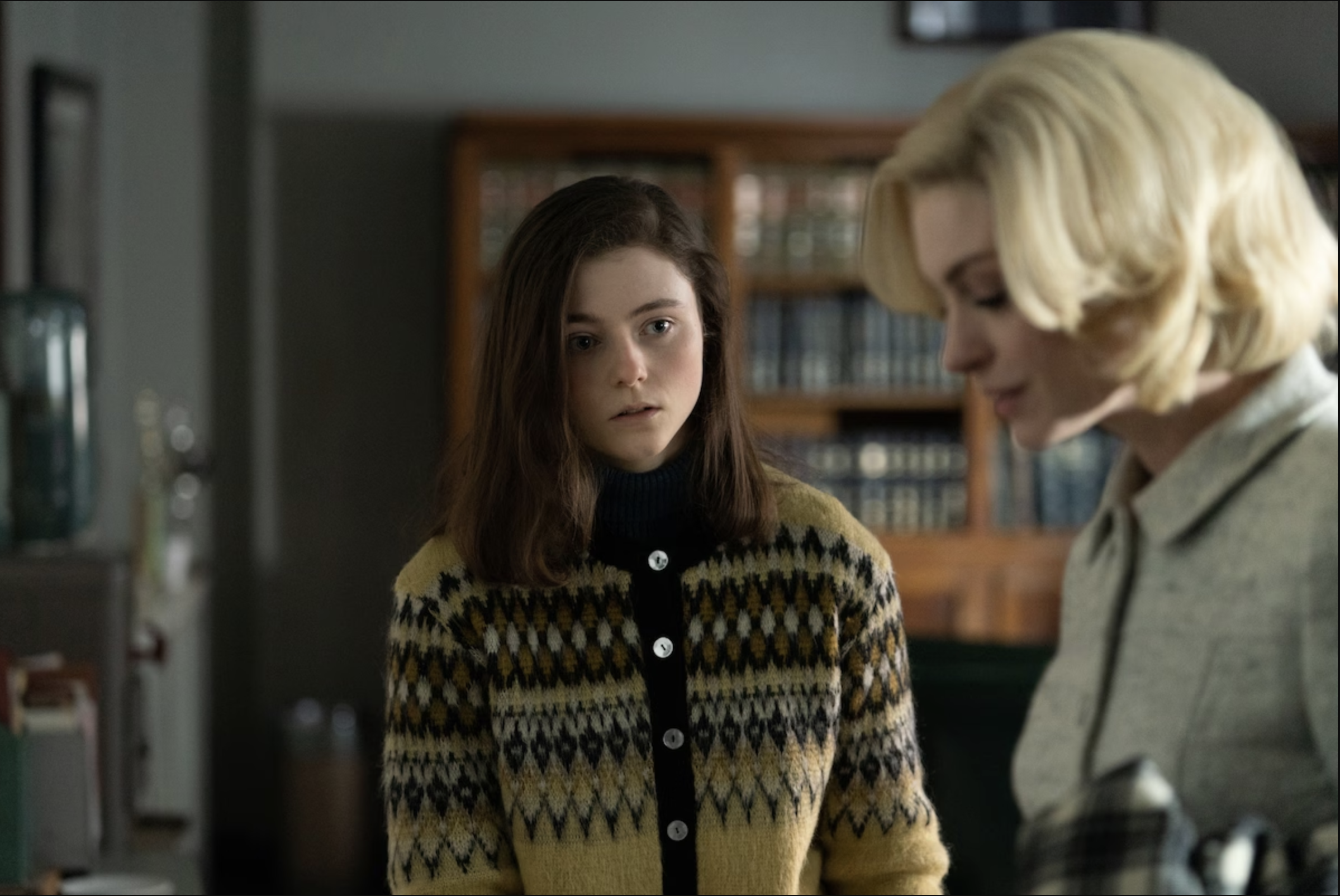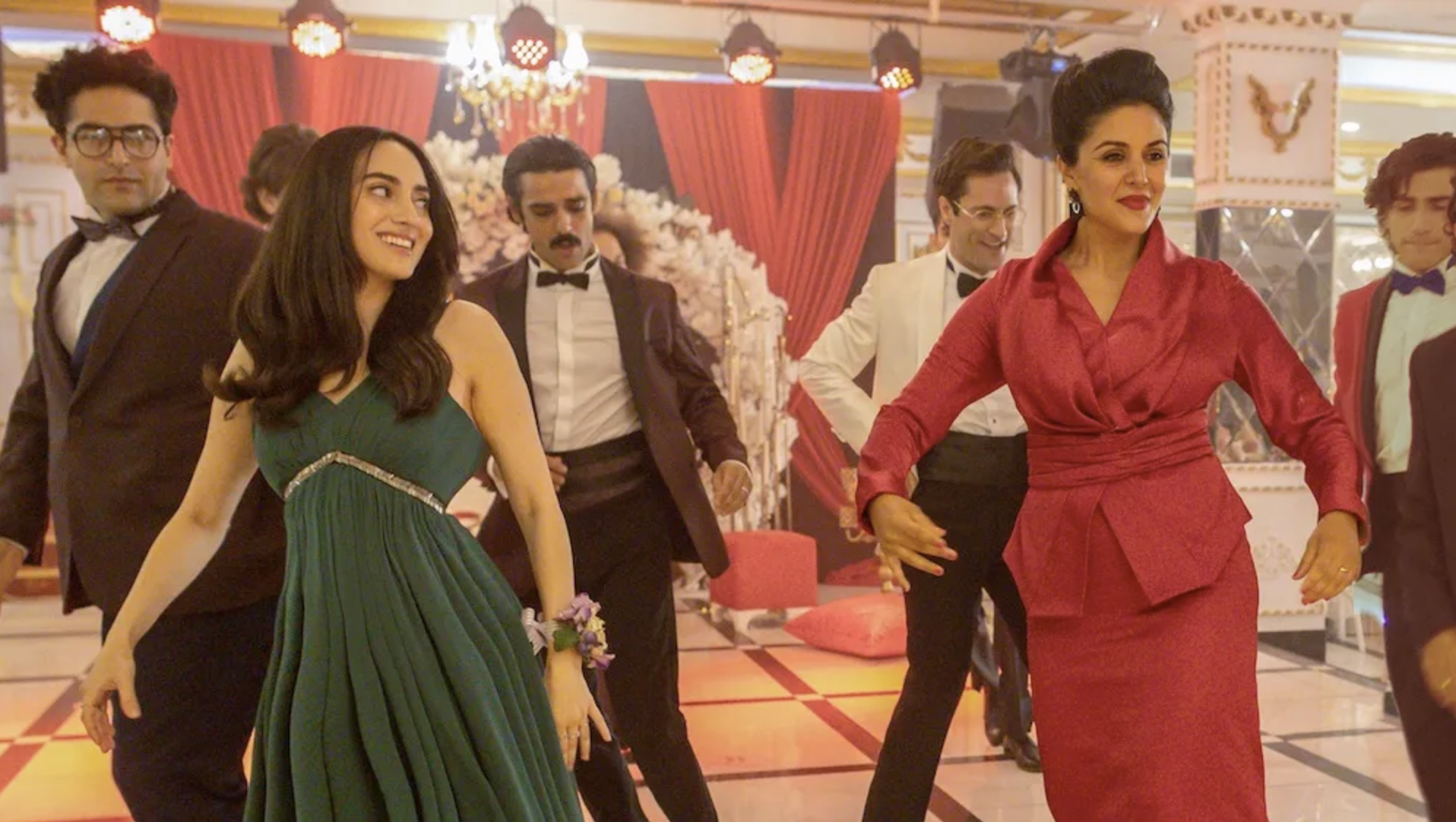Directing: B+
Writing: B+
Cinematography: A-
Editing: B+
Music: A
There is so much to say about Reinassance: A Film by Beyoncé, not least of which is that subtitle: the film was written, produced and directed by Beyoncé herself. Could I possibly cover everything there is to say about it? My best hope is to cover a fraction of it—I’m just another gay White guy, after all. There are things Beyoncé means to other communities that I could not possibly relate to.
This much is clear: People. Love. Beyoncé. Renaissance is packed with audience clips featuring fans going apeshit, and my best guess would be that, to those people, this film is an outright masterpiece. When it comes to those kinds of fans, the star can do no wrong. The closest to that kind of idol I have ever had is Madonna—who even gets a shoutout here, during the performance of “Break My Soul” that samples Vogue, and literally folding “queen mother, Madonna, we love you!” into the lyrics—and not even I go apeshit at her concerts. (I do get excited in a way I don’t at other concerts.) I quickly run out of patience for excessive fan fawning, and have even left Madonna fan groups on Facebook because of ridiculous backlash to the slightest of criticisms.
And yet, when it comes to Renaissance, here’s the thing: I can find nothing, really, to criticize. It’s a fantastically immersive, documentary concert film, a fairly even mix of impeccably shot live performance footage and backstage and behind-the-scenes footage. If forced to criticize anything, it might be the run time, which comes in at just eleven minutes shy of three hours. It seems even concert films are not immune to the current trend of indulgent editors. Of course, I say this as a genuine fan of Beyoncé, someone with all of her albums, someone who loves her too—but, you know, just not that much. I don’t go apeshit over her.
It should be noted that I went to a 12pm screening on a Saturday. I was one of literally four people in the theater, and one of two people who came alone. Only the two guys who came together, and sat two seats away from me in my row, so much as sang along to a few of the songs. Given what I have heard about packed evening screenings that make quite a contrast to this experience, crowds so rowdy it might as well be at a literal concert, it’s clear that how great an experience this film is will depend a great deal on what you’re looking for, and the context in which you see it.
There are two major things that stayed with me after seeing Renaissance. The first is the audience, and who this film’s editors chose to focus on. It comes as no surprise that Beyoncé’s audiences are largely Black people, but also—holy shit, a lot of gay men. Such a majority of the men seen in the audience display some level of queer sensibility that I made a game of identifying what few men at least appeared to be cisgender and straight. (It’s not lost on me that this is ultimately a regressive exercise, especially in an age when the very concept of “gaydar” is deeply dated.) As you can imagine, there’s a lot of queer Black men.
And nowI have to bring it back to Madonna once again, because of the inevitable comparisons to her seminal 1991 concert documentary Madonna: Truth or Dare. There have of course been several other films inspiring comparison to Truth of Dare, but I’m not sure there as ever been a more apt comparison than with Renaissance. And Renaissance is executed as though it identified the flaws in Truth or Dare—creating a false narrative of the star being “mother” to her dancers; artistic choices that serve only to sensationalize—and dispensed with them.
As someone who is a huge fan of both Madonna and Beyoncé, I see these two artists’ status in the queer community as representative of different eras. Much as I love Madonna and still acknowledge the trail she blazed for others after her, most of her business decisions were ultimately self-serving, and it must be acknowledged how much queer and Black culture (and, in particular, Black queer culture) she appropriated. “Vogue” is the ultimate example of this, mainstreaming Black ballroom culture and ultimately whitewashing it. I suppose you could argue that Beyoncé makes ultimately self-serving decisions as well—I mean, shit, the woman is worth $540 million—but she also elevates other communities in a way few of her artistic forebears have. An entire behind-the-scenes sequence in Renaissance is dedicated to how many of her dancers on this tour are queer Ballroom dancers.
There is an organic flow to how the backstage footage is edited into the concert performance footage. Renaissance begins with a collage Beyoncé addressing whatever city she’s in, saying “I love you” to them, and then launching into the “I love you, I love you, I love you” of “Dangerously in Love”—a conceit that is both simple and clever. She makes the unusual, yet effective, choice of opening her set with a couple of ballads, and then shifts into higher-tempo tracks from the Renaissance album: “I’m That Girl,” “Cozy,” “Alien Superstar.” It’s actually several songs in before the shift from concert to documentary footage occurs, and it happens mid-performance at a concert where the sound suddenly cuts out. Suddenly we’re backstage, seeing everyone scramble, find a quick solution, and then launch right back into performance.
The documentary footage is used very sparingly during the first hour or so of the film, but at a measured pace, the behind-the-scenes stuff becomes more frequent. I can’t say that Renaissance reveals who Beyoncé “really is” any more than any of these kinds of films do, but we do get a glimpse of some of her frustrations, particularly when crew around her don’t give her the respect she deserves (this plays out very subtly, for the record, but it’s there). Beyoncé is well known to be fiercely protective of her personal life, and whatever she has revealed, from whatever informed the Lemonade era to anything she shares here, has been meticulously calculated and controlled.
The second major thing that stayed with me after seeing Renaissance is the spectacular costuming. I found myself thinking: I want a feature length documentary on just the costume designs for this tour. Eventually, we actually do get a segment on costume design, which touches on the Uncle Johnny who made the dress referenced in “Heated.” And here we get to some of the best editing in Renaissance, because in nearly every performance, shots will seamlessly cut between different performances of the same song, in either a totally different dress or outfit, or a variation of the same jumpsuit. The edits are so clean that it often looks as though her outfit magically changes mid-movement.
The great costuming extends to the dancers and musicians, perhaps most memorably the trumpeter Crystal Torres, who was very pregnant during much of the tour. She is often seen in the background, elaborately costumed in a way that proudly frames and accentuates her bare, pregnant belly. And this is, perhaps, the magic of Beyoncé: she commands authority, won’t take no for an answer when she knows she doesn’t have to, and also elevates and supports the people who work with her. Or so it would seem from this movie, anyway—and the effectiveness of the film is all I am judging here.
Overall, I had a great time at Renaissance: A Film, even if I found it to be even poorer a substitute for a real, live concert than I expected. I could easily feel differently about that had I seen it in a full house of fans, or if I had managed to attend an actual concert but had to sit in nosebleed seats. Emotional distance aside, there is no physical difference between audience and performance in Renaissance, which is probably the best thing to recommend it. As is typical with films like this, if you are a casual fan, there’s no need for you to go out of your way, necessarily. But if you love Beyoncé the way the fans shown in this film do, then you will have a spectacular experience.










